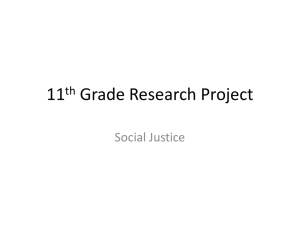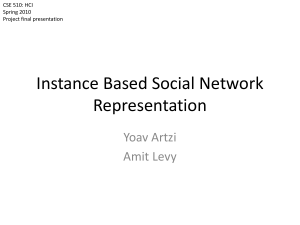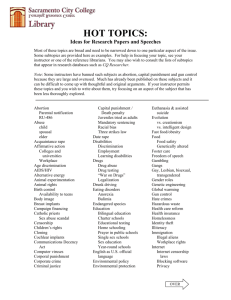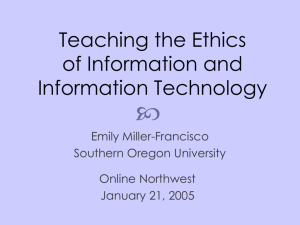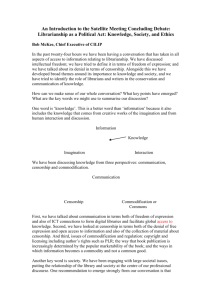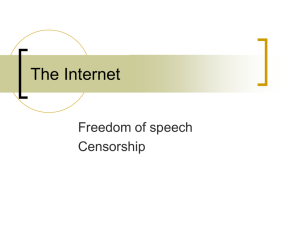File - portmunc iii
advertisement
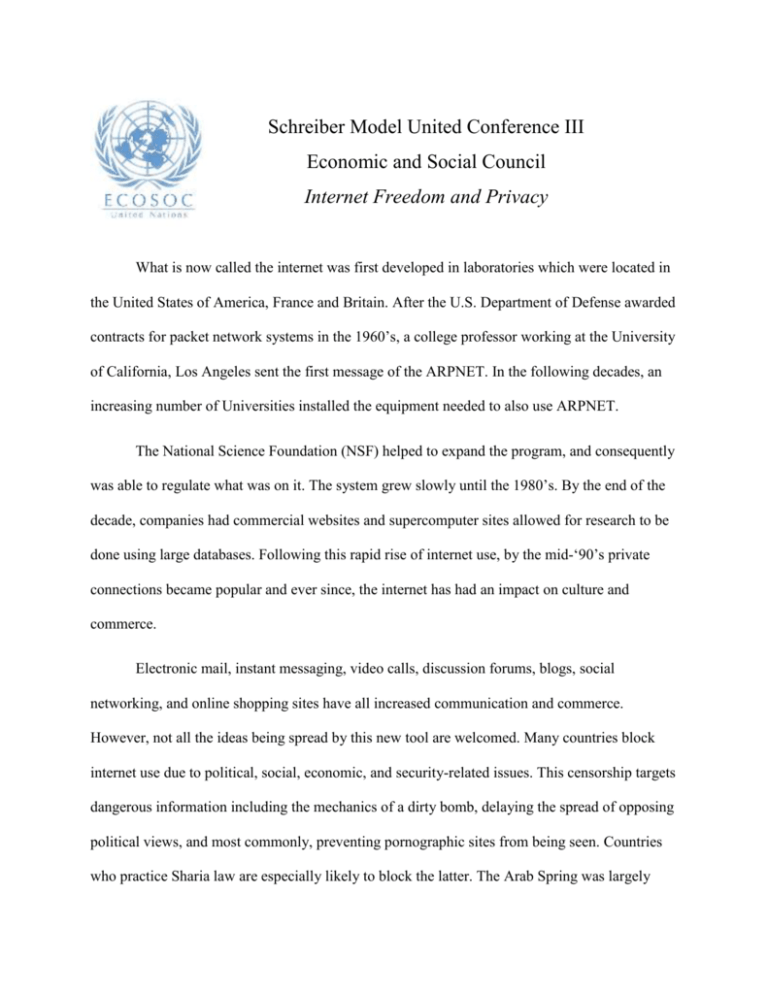
Schreiber Model United Conference III Economic and Social Council Internet Freedom and Privacy What is now called the internet was first developed in laboratories which were located in the United States of America, France and Britain. After the U.S. Department of Defense awarded contracts for packet network systems in the 1960’s, a college professor working at the University of California, Los Angeles sent the first message of the ARPNET. In the following decades, an increasing number of Universities installed the equipment needed to also use ARPNET. The National Science Foundation (NSF) helped to expand the program, and consequently was able to regulate what was on it. The system grew slowly until the 1980’s. By the end of the decade, companies had commercial websites and supercomputer sites allowed for research to be done using large databases. Following this rapid rise of internet use, by the mid-‘90’s private connections became popular and ever since, the internet has had an impact on culture and commerce. Electronic mail, instant messaging, video calls, discussion forums, blogs, social networking, and online shopping sites have all increased communication and commerce. However, not all the ideas being spread by this new tool are welcomed. Many countries block internet use due to political, social, economic, and security-related issues. This censorship targets dangerous information including the mechanics of a dirty bomb, delaying the spread of opposing political views, and most commonly, preventing pornographic sites from being seen. Countries who practice Sharia law are especially likely to block the latter. The Arab Spring was largely caused by students spreading and developing ideas through the internet. In response, some countries, such as Iran, harshly constrained internet use. Countries are also increasingly filtering information during crucial times. Throughout the duration of election season, there is often a rise in blocked material. Blocking sites isn’t the only form of censorship that countries use, more and more people are being arrested for comments said on social media. Liking the wrong status on Facebook can land one in jail. In France, Dieudonné M'bala M'bala, a controversial comedian, has been charged several times for advocating ideas that oppose those of his country’s. There seems to be a trend of increasing censorship and harshening punishments. Another major issue in regards to the internet is privacy. Some countries have few regulating laws. However, the more people that use the internet in a country, the more controversial it becomes. Studies have shown a direct relationship between internet users and the more want for privacy and no regulations. Companies can invade privacy relatively easily, most consumers don’t even know it. On the other hand, search companies such as Google, have respected some requests to not have certain information links pop up when certain words are typed in. This “right to be forgotten” protects individuals, but also decreases the freedom of the internet. Privacy and no restraints often contrast one another. Food for Thought: Should there be international regulations in regards to internet freedom and privacy? Is freedom and privacy of the internet a right or a privilege? Should privacy be protected, or should the loss of it be a mandatory sacrifice for using the internet? How to balance privacy and freedom. Helpful Links: http://www.unesco.org/new/en/communication-and-information/resources/publicationsand-communication-materials/publications/full-list/global-survey-on-internet-privacyand-freedom-of-expression/ https://opennet.net/ http://en.wikipedia.org/wiki/Internet_censorship_and_surveillance_by_country






